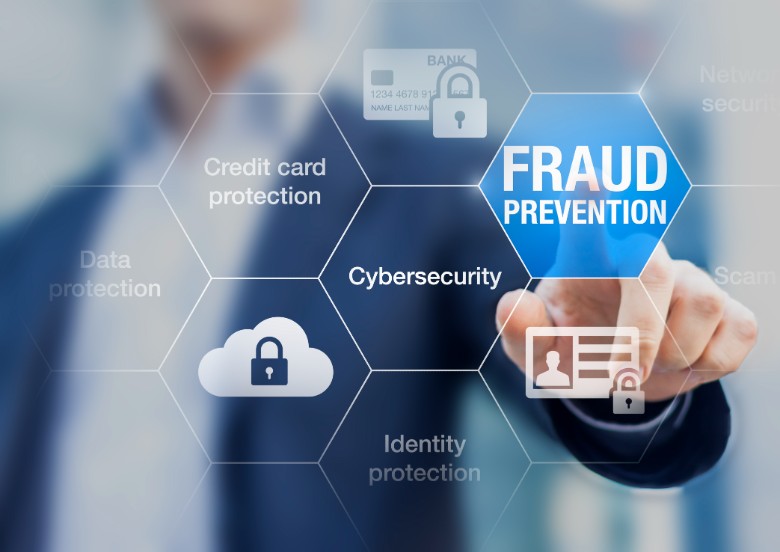Introduction to the Growing Threat of Identity Theft and Prevent Financial Fraud
Prevent Financial Fraud: Today there are thousands of risks in which your identity is on the line and digital risks about identity theft, financial fraud, etc. are the major threats.
Fraud has more than doubled and fraudsters have more personal and financial information available to them than ever before, so they have effectively exploited vulnerabilities.
Regardless of whether you’re a financial planner yourself, you love buying stuff online, or you’re just tired of your identity being stolen or misused, it’s important to have the very best strategies to protect your identity.

Understanding the Importance of Protecting Your Personal Information
A new way of life: It is a lot beyond inconvenience when safeguarding your personal information. It surprisingly extends into your financial future and a protected well-being.
It can also turn into unauthorized charges, damaged credit scores, or even criminal charges.
Taking the proper proactive measures could save you from the potential disaster of losing your data.
Practical Tips for Consumers Securing Your Digital Identity
Creating Strong Passwords
The simplest, yet most effective way to preserve the security of your online accounts is the utilization of strong passwords.
Steer clear of general words or phrases and use letters, numbers and symbols mixed together. Password managers, for example, can generate complex passwords for you and save them securely.
Utilizing Two-Factor Authentication
What is Two-Factor Authentication2-Step Verification Two-factor authentication (2FA) is a way to add an extra layer of security to your online accounts. Because 2FA demands a second layer of verification, say a text message code or a fingerprint scan — it substantially increases the difficulty for incorrect users obtain access to your account.
Regularly Monitoring Financial Accounts
It’s important to monitor your bank and credit card statements to ensure you catch any irregular activity as soon as possible. Special alerts for suspicious activity are provided by lots of credit organisations to further secure your account.
Strategies for Financial Planners to Safeguard Client Information
Implementing Secure Communication Channels
Financial Planners — Financial planners deal with sensitive client information on a daily basis. A secure client portal or encrypted email will ensure that this type of data is protected from unauthorized access.
Educating Clients on Best Practices
Client education: It is critical to educate clients about cybersecurity. Advise them to set complex passwords and always be on the lookout for 2FA and anything suspicious about their accounts. By giving them resources and tools, we can help enable citizens to play an active role in protecting their data.
The Role of Technology in Preventing Fraud
Overview of Fraud Detection Tools
Technology is one of the most significant weapons in the fight against financial fraud. Largely, these trends may be impossible for a human analyst to be able to discern and behaviors can be probed to reveal potentially nefarious activity, e.g. using a technology such as machine learning or artificial intelligence.
Emerging Technologies in the Fight Against Fraud
New technologies such as blockchain and biometric authentication offer novel means of fortifying payment processes and verifying the identity of individuals. This has further increased the security layers around the people, who have now less chances of being actually defrauded by these miscreants.
Case Studies Real-Life Examples of Successful Fraud Prevention
Without even realising real life case studies are the store of gleaning tricks and tips to fraud prevention strategies. They noticed that in some types of financial institutions, the application of machine learning models to search for unusual transaction patterns could identify hundreds of thousands of suspicious transactions and save them millions of dollars.
The Future of Identity Protection Predicting Trends and Challenges
Looking at Identity Protection Identity protection is always a moving target. Fraudsters are up to speed with the tech. This is important for consumers and for financial professionals to keep up on evolving threats and trends. More cyber-aware means fighting the more sophisticated cyber-attacks of the future as well as securing the new payment methods we’re being asked to adopt now.
Conclusion Empowering Consumers and Financial Professionals to Stay One Step Ahead
Recap of Key Points
- Identity theft and financial crimes are some of the fastest-growing threats today.
- Financial strength is very important to keep personal information safe.
- Some common sense ideas are setting a strong password, using 2FA, and monitoring your accounts.
- Using secure communication channels and also by educating clients on the relevant issues, the financial planner can tackle this.
- Use Technology And Tools When Technology and Tools come to Fraud Protection thenTechnology and Established Tools play an important role.
Call to Action for Improved Online Security Practices
Here are steps you need to take in order to maintain the protection of your identity and financial information. Use the tips & techniques addressed in this article to add more layers of security to your website. Be vigilant and act before fraudsters.
References and Further Reading
- National Cyber Security Alliance (staysafeonline.org)
- Federal Trade Commission’s Identity Theft Resource Center (identitytheft.gov)
- SANS Institute’s Guide to Cyber Security (sans.org)
This will allow you to do your part in protecting yourself and your finances from what has become a fast-spreading concern with identity theft and financial fraud. Be vigilant and ensure security everywhere season of your online activity.
Read Also: How to Maximize Your Crypto Rewards: A Comprehensive Guide.

1 thought on “How to Protect Your Identity and Prevent Financial Fraud”